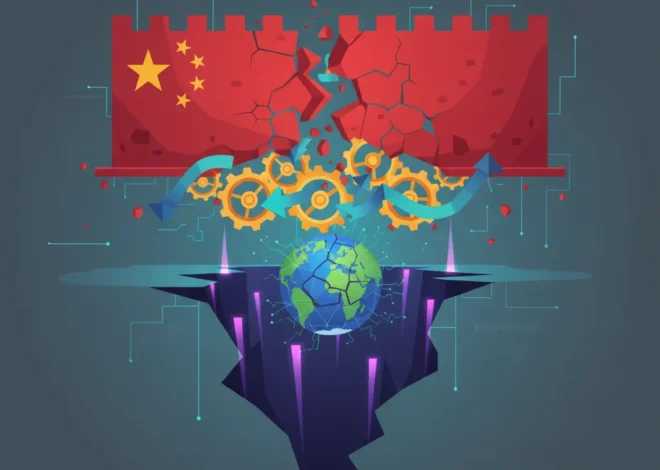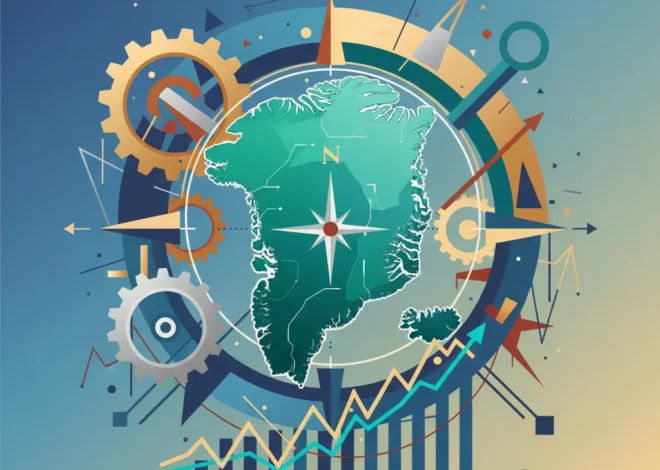
The Peril of Prosperity: When Economic Blueprints Ignite Geopolitical Firestorms
The Unseen Catalyst: Beyond the Headlines of Conflict
On October 7, 2023, the world watched in horror as simmering tensions in the Middle East exploded into a full-scale conflict. For the financial world, the immediate reaction was textbook: a flight to safety, a spike in oil prices, and a nervous tremor through the global stock market. Most analysis, understandably, focused on the immediate political and military triggers. Yet, a thought-provoking letter to the Financial Times by Charles Mercey posed a question that cuts to the heart of modern geopolitics and investing: Was a plan for a “Gaza Riviera” the last straw? This question forces us to look beyond the conventional narratives and explore a more insidious catalyst: the profound, often disastrous, disconnect between grand economic visions and the granular, human reality on the ground.
The idea of transforming Gaza’s coastline into a glittering hub of commerce and luxury, a “Riviera,” is not new. It has been floated in various forms over the years, most recently alluded to by figures like Jared Kushner, who spoke of Gaza’s “very valuable” waterfront property. On the surface, such plans are packaged in the alluring language of development, prosperity, and peace—a vision of a brighter economic future. But beneath this glossy veneer lies a dangerous assumption: that economic incentives can override or erase deep-seated political grievances, historical trauma, and the quest for self-determination. This post will delve into the perilous intersection of ambitious economic development and volatile political landscapes, using the “Gaza Riviera” concept as a case study to illustrate the immense financial risks of ignoring geopolitical realities.
The British Economic Paradox: Why a Stagnant Economy Feels Surprisingly Stable
Economic Grandeur vs. Political Reality: A Blueprint for Disaster
Large-scale infrastructure and development projects are often championed as the cornerstones of modern economics and statecraft. They promise jobs, attract foreign capital, and integrate regions into the global economy. In the context of the Israeli-Palestinian conflict, proposals have ranged from artificial islands off the coast to ambitious trade corridors. One of the most significant, though speculative, concepts that often surfaces in regional discussions is the Ben Gurion Canal Project—a potential rival to the Suez Canal running through Israel. Such a project would not only reshape global trade but would also require immense regional stability and co-operation, putting the land and coast of Gaza directly in its strategic path.
These mega-projects represent a particular brand of economic thinking where capital and concrete are seen as the primary tools for problem-solving. The logic is seductive: if people have economic opportunity, their political grievances will fade. However, this approach often fails because it is perceived not as a partnership, but as a form of neo-colonialism. For Palestinians in Gaza, living under a 17-year blockade with restricted movement and a shattered economy, the vision of a “Riviera” built on their land, likely without their political consent or control, can feel less like an opportunity and more like a final, profound insult. It suggests that their political identity and national aspirations are for sale, or worse, are an inconvenience to be paved over.
This perspective is critical for anyone involved in international finance. When investment proposals are seen as tools to pacify a population rather than empower them, they carry a hidden, explosive risk. The potential return on investment (ROI) of a luxury resort is meaningless if the underlying social contract is so broken that the entire area is a tinderbox waiting for a spark.
The Staggering Cost of Miscalculation: A Financial Autopsy
The failure to accurately price geopolitical risk is one of the most consistent and costly errors in modern finance. The events of October 7th and the ensuing war provide a brutal accounting of what happens when this risk materializes. The hypothetical economic benefits of a peaceful development plan are dwarfed by the real-world costs of conflict.
Let’s consider the financial fallout. The war has had a devastating impact on both the Israeli and Palestinian economies. According to a report by the World Bank and the United Nations, the damage to critical infrastructure in Gaza was estimated at around $18.5 billion as of January 2024. This figure represents 97% of the total GDP of the West Bank and Gaza from the previous year. For Israel, the economic toll has also been severe. The Bank of Israel estimated the total cost of the war could reach $67 billion by 2025, factoring in defense spending, loss of productivity, and damage payments.
The table below provides a stark comparison between the hypothetical gains of a top-down development plan and the catastrophic economic reality of the conflict that such a politically deaf approach may have helped to fuel.
| Economic Metric | “Gaza Riviera” Plan (Hypothetical Projection) | Post-Conflict Economic Reality (Actual Estimates) |
|---|---|---|
| Foreign Direct Investment (FDI) | +$10-20 Billion (Projected) | Complete Capital Flight; Investment Frozen |
| Gaza GDP | +10-15% Annual Growth (Projected) | -80% Contraction in Q4 2023 |
| Infrastructure Value | Net Positive (New Construction) | -$18.5 Billion in Damages |
| Israel’s National Budget | Neutral to Positive (Tax Revenue) | -$67 Billion in War Costs (Projected) |
| Regional Trade & Logistics | Enhanced (New Port/Corridor) | Severe Disruption (Red Sea, etc.) |
This data illustrates a crucial lesson for business leaders and finance professionals: political stability is the bedrock of economic prosperity. Any investment strategy that treats it as an externality is, fundamentally, a gamble against the house. The allure of high returns in volatile regions must be tempered with a profound understanding of the non-financial risks that can obliterate a balance sheet overnight.
UBS's Private Credit Headache, Wall Street's Crypto Gamble, and a Saudi Reality Check
Rethinking Investment: From Exploitation to Empowerment
So, what are the actionable takeaways for the global investment community? The era of viewing emerging markets as passive recipients of capital is over. A more sophisticated, resilient, and ethical approach is required, one that integrates deep geopolitical understanding with financial modeling.
1. Price Political Risk Accurately
Investors must move beyond simplistic country risk ratings. This means investing in genuine intelligence—not just economic data, but qualitative, on-the-ground insights into social cohesion, political sentiment, and historical grievances. The rise of financial technology and AI can help process vast amounts of unstructured data, from social media sentiment to local news reports, to build more dynamic and nuanced risk models.
2. Prioritize Inclusive Development
Instead of top-down mega-projects, the future of successful investment in complex regions lies in models that prioritize local partnership, ownership, and empowerment. Impact investing, which seeks measurable social and environmental impact alongside a financial return, provides a useful framework. Projects that are co-designed with local communities, that respect cultural and political contexts, and that distribute benefits equitably are not only more ethical—they are more durable and, therefore, less risky in the long run.
3. Embrace Transparency and Good Governance
For decades, the worlds of high finance and murky geopolitics have often intersected in the shadows. The use of technologies like blockchain could introduce unprecedented transparency into supply chains and the distribution of development aid, reducing corruption and ensuring funds reach their intended recipients. Strong governance, both within the investment fund and the project on the ground, is the single greatest mitigator of risk.
Frozen Assets, Fiery Debate: Unpacking the €140 Billion Standoff Over Russia's Wealth
The “Gaza Riviera” concept, whether a serious proposal or mere rhetoric, serves as a powerful symbol of a flawed ideology. It represents a belief that the complex, deeply human pursuit of freedom, dignity, and sovereignty can be neatly solved with an infusion of cash and a luxury development plan. The tragic events that have unfolded demonstrate the bankruptcy of this idea. For the global financial community, the lesson is both simple and profound: capital that is blind to context is not just bad ethics, it is bad business. The path to sustainable returns does not lie in paving over problems, but in investing in the difficult, necessary work of building genuine, equitable, and lasting peace.


